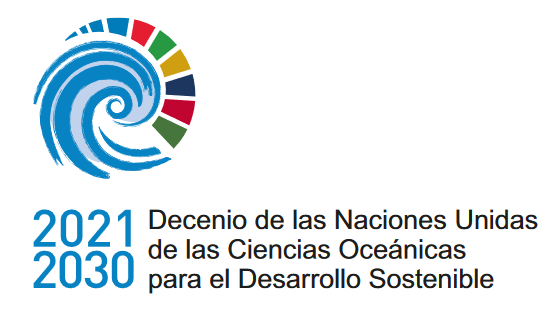Comparación de la dinámica socioeconómica y el desempeño del mercado en las cadenas de valor de la langosta y el camarón gigante de agua dulce en Sri Lanka
DOI:
https://doi.org/10.47193/mafis.3842025011007Palabras clave:
Estrategias de diferenciación, crustáceos de alto valor, sustentabilidadResumen
Las pesquerías de langosta silvestre y langostino gigante de agua dulce (GFP) de cultivo en Sri Lanka abastecen a mercados de alta gama con exportaciones significativas. Sin embargo, existe una notable brecha en la literatura sobre el análisis de la cadena de valor y los aspectos del desempeño del mercado en ambos sectores. Este estudio identificó los perfiles de los actores y la dinámica de la cadena de valor en ambos sectores mediante un mapeo estructural. El desempeño del mercado se evaluó a través de costos, márgenes, diferencial de precios y eficiencia de comercialización, y se propusieron estrategias de diferenciación para el crecimiento sectorial. La recopilación de datos incluyó cuestionarios administrados por entrevistadores y entrevistas en profundidad con 748 pescadores, 44 recolectores y 12 exportadores, entre diciembre de 2022 y marzo de 2024. Los resultados destacaron que la cadena de valor de la langosta estaba altamente orientada a la exportación, concentrándose en el comercio de ejemplares vivos y precios prémium. Los pescadores y recolectores se enfrentaban a los riesgos derivados de la fluctuación de las poblaciones y las estrictas regulaciones, mientras que los exportadores lidiaban con la volatilidad logística y del mercado. Los actores aguas arriba a menudo sobreexplotan los recursos para aumentar la producción, en lugar de mejorar la calidad, lo que conduce a prácticas insostenibles. Para mitigar los desafíos del mercado, acciones como la promoción de productos con etiquetas como “langosta silvestre” y “GFP de cultivo convencional”, el mantenimiento de los estándares de inocuidad y calidad alimentaria y la optimización logística son esenciales para mejorar la competitividad. El sector de GFP opera tanto en el mercado nacional como en el de exportación, compitiendo con el camarón comercial. Si bien genera empleo, su rendimiento financiero es moderado, limitado por los altos costos de cultivo y la competitividad de precios. Los esfuerzos de diferenciación deben centrarse en el etiquetado sostenible, los productos con valor añadido, la exportación directa y la atención a nichos de mercado para impulsar la rentabilidad y reducir la dependencia de los mercados a granel.
Descargas
Referencias
Abeyrathne AHMTG, Jayasinghe-Mudalige UK, Wijenayake WMHK, De Croos MDST. 2020. Sustainable livelihood and market chain analysis of giant freshwater prawn culture-based systems in two selected reservoirs in Puttalam District, Sri Lanka. Sri Lanka J Aquat Sci. 25 (1): 33-42. DOI: https://doi.org/10.4038/sljas.v25i1.7574
Acharya SS. 2016. Policy analysis-what and how: a case of agricultural price and marketing policies in India. [accessed 2024 Sep 20]. Indian J Agric Market. 30 (3): 26-47. https://journals.indexcopernicus.com/search/article?articleId=2436640.
Acharya SS, Agarwal NL. 2016. Agricultural marketing in India. New Delhi: Oxford and IBH Publishing Corporation Private Limited. 322 p.
Ahmed MK, Sultana S, Halim S, Islam MM. 2016. Marketing systems of freshwater prawns in three coastal districts of Bangladesh. Aquac Econ Manag. 20 (3): 272-282. DOI: https://doi.org/10.1080/13657305.2016.1177858
Ahmed N, Ahammed F, Lecouffe C. 2007. Socioeconomic aspects of small-scale freshwater prawn marketing systems in Mymensingh, Bangladesh. Aquac Econ Manag. 11 (4): 335-353. DOI: https://doi.org/10.1080/13657300701530324
Ahmed N, Bunting SW, Rahman S, Garforth CJ. 2014. Community‐based climate change adaptation strategies for integrated prawn-fish-rice farming in Bangladesh to promote social-ecological resilience. Rev Aquac. 6 (1): 20-35. DOI: https://doi.org/10.1111/raq.12022
Amarasinghe US. 2014. Fisheries resources in alleviation of hunger and malnutrition in Sri Lanka-accomplishment and challenges. Sri Lanka J Aquat Sci. 18: 1-5. DOI: https://doi.org/10.4038/sljas.v18i0.7034
Ariyaratne MHS, Amaraweera R. 2015. Fish offal based aqua-feed for rearing post-larvae of freshwater prawn, Macrobrachium rosenbergii. Sri Lanka J Aquat. 20 (2): 39-47. DOI: https://doi.org/10.4038/sljas.v20i2.7477
Ariyawardana A, Collins R. 2013. Value chain analysis across borders: the case of Australian red lentils to Sri Lanka. Asia Pac Bus Rev. 14 (1): 25-39. DOI: https://doi.org/10.1080/10599231.2012.717839
Bakala F, Tadesse B. 2019. Market chain analysis for potato: a case study in Masha District, South-western Ethiopia. Econ Bus Manage. 7 (1): 9-21.
Basnayake BMRL, De Silva DAM. 2023. Best practices for lobsters: a precautionary approach for lobster fisheries management in Sri Lanka. Proceedings of the International Conference on Building Resilience in Tropical Agroecosystems, Colombo, Sri Lanka: University of Ruhuna. 23 p.
Basnayake BMRL, De Silva DAM. 2024. Consumer perception vs supply of lobster and giant freshwater prawns. Proceedings of the First International Conference on University-Industry Collaborations for Sustainable Development. 2024 March 15-17, Colombo, Sri Lanka. p. 132-142.
Chand K, Kumar S, Suresh A, Dastagiri MB. 2020. Marketing efficiency of vegetables in developing economies: evidences for critical intervention from Rajasthan, India. Indian J. Agric Sci. 90: 55-63. DOI: https://doi.org/10.56093/ijas.v90i8.105908
Cheffo A, Zemedu L, Geta E. 2014. Market chain analysis of koka reservoir fish in ethiopia. Am J Sci Res Essays. 1 (1): 42-53.
Dasgupta S, Davis KJ, Wirth FF. 2007. Selling freshwater prawn in food festivals: a marketing experiment in Kentucky. Aquacult Econ Manage. 11 (1): 3-16. DOI: https://doi.org/10.1080/13657300701202635
Dasgupta S, Williams BR. 2008. The economics and management of small-scale freshwater prawn (Macrobrachium rosenbergii) processing using data from Kentucky. Aquacult Econ Manage. 12 (1): 1-24. DOI: https://doi.org/10.1080/13657300801959605
Freeman MA, Coatney K, Schilling M, Allen P, Ciaramella M. 2017. Willingness-to-pay for value-added freshwater prawns. Aquacult Econ Manage. 21 (4): 419-432. DOI: https://doi.org/10.1080/13657305.2016.1180645
Gordon DV. 2021. Price and revenue projections under alternative policy shocks due to the coronavirus: Canadian lobster and snow crab. Mar Policy. 130: 104556. DOI: https://doi.org/10.1016/j.marpol.2021.104556
Gori UR, Kharkwal S. 2016. A comparative study of the structure and performance of two major fruits and vegetables markets under Uttarakhand APMC. Indian J Econ Dev. 4 (6): 1-15.
Haslawati B, Saadiah I, Siti-Dina RP, Othman M, Latif MT. 2022. Environmental assessment of giant freshwater prawn, Macrobrachium rosenbergii farming through life cycle assessment. Sustainability. 14 (22): 14776. DOI: https://doi.org/10.3390/su142214776
Hewapathirana SK, Ekanayake KBSSJ, Liyanage U, De Silva DAM. 2022. catch diversity of small-scale lobster fishery in the southern coast of Sri Lanka. Proceedings of the 26th International Forestry and Environment Symposium, Colombo, Sri Lanka, University of Sri Jayawardhanapura. p. 150.
Jayakody DS. 1989. Size at onset of sexual maturity and onset of spawning in female Panulirus homarus (Crustacea: Decapoda: Palinuridae) in Sri Lanka. Mar Ecol Prog Series. 57 (1): 83-87.
Jayawickrema SJC. 1991. Fishery and population dynamics of Panulirus homarus (Linnaeus) from Mutwal, Sri Lanka. J Nat Sci Coun Sri Lanka. 19 (1): 52-61. DOI: https://doi.org/10.4038/jnsfsr.v19i1.8172
Jeyanthi P, Gopal N. 2012. Growth and instability in Indian frozen scampi export. Fish Technol. 49: 187-192.
Kerutagi MG, Jangale AS, Gayathri S, Jagadeshwaran P, Sengar RS. 2023. Modern approaches in agricultural economics. New Delhi: Elite Publishing House. 270 p.
Koralagama DN, Amaraslnghe O, Jayakody S. 2007. Export market of lobsters in Sri Lanka, with special reference to slipper lobsters. Proceedings of the Fourth Academic Sessions, Technical Session III (NARA). 2007 March 2. Colombo, Sri Lanka. p. 84-90.
Liao DS, Smith TIJ. 1981. Test marketing of freshwater shrimp, Macrobrachium rosenbergii, in South Carolina. Aquaculture. 23 (1-4): 373-379. DOI: https://doi.org/10.1016/0044-8486(81)90031-4
Liyanage USPK, Long B. 2009. Status of the South Coast lobster fishery. CENARA Project Reports on Lobsters, National Aquatic Resources Research and Development Agency. 9-19 p.
National Aquaculture Development Authority. 2023. Annual aquaculture export statistics, Sri Lanka. [excel sheet]. NAQDA. [accessed 2024 Dec 17]. https://www.naqda.gov.lk/statistics.xlsx.
Otumawu-Apreku K, McWhinnie SF. 2020. Profit efficiency of the south Australian rock lobster fishery: a nerlovian and directional distance function approach. Mar Policy. 117: 103962. DOI: https://doi.org/10.1016/j.marpol.2020.103962
Prowse M, Moyer‐Lee J. 2014. A comparative value chain analysis of smallholder burley tobacco production in Malawi - 2003/4 and 2009/10. J Agrar Change. 14 (3): 323-346. DOI: https://doi.org/10.1111/joac.12022
Pushpalatha KBC, Chandrasoma J, Fernando WAJR, Sanjeewa KD. 2017. Impacts and importance of the introduction of culture-based fisheries in three medium-sized perennial reservoirs in Sri Lanka. Asian Fish Sci. 30 (139): 139-151. DOI: https://doi.org/10.33997/j.afs.2017.30.3.001
Rajeevan R, Edirisinghe U, Athauda ARSB. 2019. Performance of Macrobrachium rosenbergii in perennial reservoirs: a comparative assessment of fisheries in five perennial reservoirs in the Northern Province of Sri Lanka. Trop Agric Res. 30 (3): 69-79. DOI: https://doi.org/10.4038/tar.v30i3.8320
Rajeevan R, Edirisinghe U, Athauda ARSB. 2021. Role of giant freshwater prawn (Macrobrachium rosenbergii) in livelihoods of the rural fishers of Northern Province of Sri Lanka. Int J Fish Aquat Stud. 9 (2): 44-51. DOI: https://doi.org/10.22271/fish.2021.v9.i2a.2441
Salladarré F, Guillotreau P, Loisel P, Ollivier P. 2017. The declining price anomaly in sequential auctions of identical commodities with asymmetric bidders: empirical evidence from the Nephrops norvegicus market in France. Agric Econ. 48 (6): 731-741. DOI: https://doi.org/10.1111/agec.12370
Senevirathna JDM, Munasinghe DHN. 2013. Identification of taxonomic status of spiny lobster species in Sri Lanka using DNA barcoding and its implications on fisheries and conservation programs. Trop Agric Res. 25 (1): 96-108. DOI: https://doi.org/10.4038/tar.v25i1.8033
Tammaroopa K, Suwanmaneepong S, Mankeb P. 2016. Socio-economic factors influencing white shrimp production in Chachoengsao Province, Thailand. Int J Agric. 12 (7.2): 1809-1820.
Thakur P, Mehta P, Guleria A, Singh P, Sharma P. 2022. Farmers’ choice for output marketing channels of cauliflower in Himachal Pradesh, India: a multinomial logit model analysis. Econ Aff. 67 (5): 731-738. DOI: https://doi.org/10.46852/0424-2513.5.2022.6
Thakur P, Mehta P, Lal P, Chaudhary R, Pani SK, Singh AG, Devi C, Verma K, Sharma P. 2024. Agricultural produce supply chain network of capsicum: empirical evidence from India. Economies. 12 (1): 24. DOI: https://doi.org/10.3390/economies12010024
Urgessa M. 2011. Market chain analysis of teff and wheat production in Halaba Special Woreda, southern Ethiopia [MSc thesis]. Haramaya University. 104 p.
Wang O, Somogyi S, Charlebois S. 2019. Mapping the value chain of imported shellfish in China. Mar Policy. 99: 69-75. DOI: https://doi.org/10.1016/j.marpol.2018.10.024
Wijenayake WMHK, Jayasinghe UAD, Amarasinghe US, Athula JA, Pushpalatha KBC, De Silva SS. 2005. Culture‐based fisheries in non‐perennial reservoirs in Sri Lanka: production and relative performance of stocked species. Fish Manage Ecol. 12 (4): 249-258. DOI: https://doi.org/10.1111/j.1365-2400.2005.00447.x

Descargas
Publicado
Número
Sección
Licencia
Derechos de autor 2025 Ruwini Basnayake, Achini De Silva

Esta obra está bajo una licencia internacional Creative Commons Atribución-NoComercial-CompartirIgual 4.0.
Los autores de los artículos publicados en Marine and Fishery Sciences conservan los derechos de autor de sus artículos, a excepción de las imágenes de terceros y otros materiales añadidos por Marine and Fishery Sciences, que están sujetos a los derechos de autor de sus respectivos propietarios. Por lo tanto, los autores son libres de difundir y volver a publicar sus artículos, sujeto a los requisitos de los propietarios de derechos de autor de terceros y sujeto a que la publicación original sea completamente citada. Los visitantes también pueden descargar y reenviar artículos sujetos a los requisitos de citas. La capacidad de copiar, descargar, reenviar o distribuir cualquier material siempre está sujeta a los avisos de derechos de autor que se muestran. Los avisos de copyright deben mostrarse de manera prominente y no pueden borrarse, eliminarse u ocultarse, total o parcialmente. El autoalmacenamiento en servidores y repositorios de preimpresión está permitido para todas las versiones.
Esta revista ofrece a los autores una política de acceso abierto. Los usuarios pueden leer, descargar, copiar, distribuir, imprimir, buscar o vincular los textos completos de los artículos, o usarlos para cualquier otro propósito legal dentro de la licencia Creative Commons 4.0 (BY-NC-SA), sin solicitar permiso previo del editor o del autor. Esto está de acuerdo con la definición BOAI de acceso abierto.






















